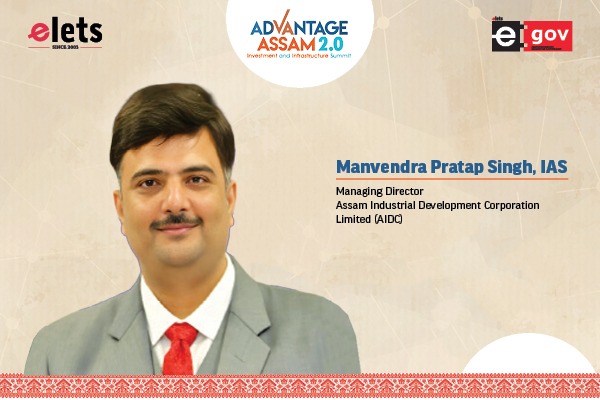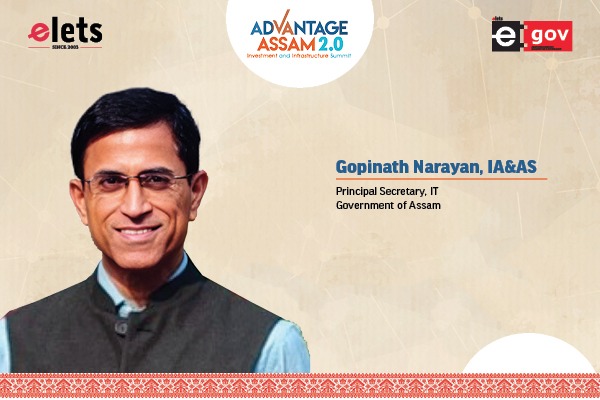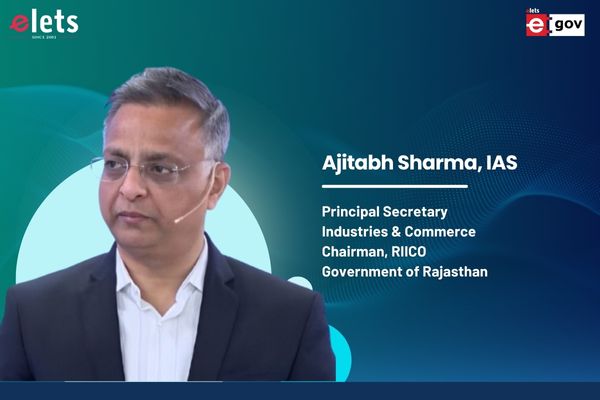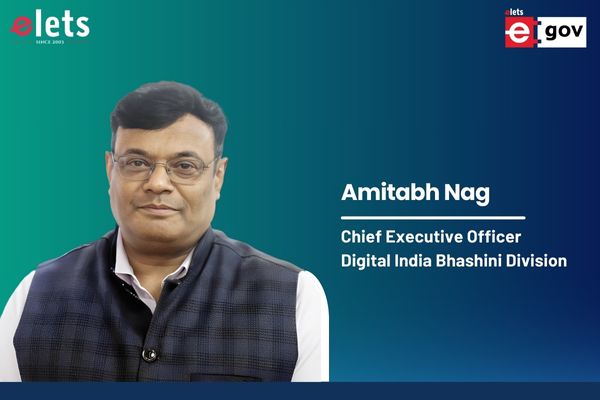
Karnataka has long been a leader in promoting industrial growth and innovation, with the MSME sector playing a crucial role in job creation and economic development. Ramanadeep Chowdhary, IAS, Secretary to the Government (MSME & Mines), Commerce & Industries Department, Government of Karnataka, shared his insights in an exclusive conversation with Elets News Network (ENN) on the state’s strategic initiatives to strengthen MSMEs, boost rural employment, integrate small enterprises into the semiconductor ecosystem, and promote sustainable business practices. Edited excerpts:
Karnataka’s MSMEs employ approximately 68.72 lakh people, with over 7 lakh micro and small enterprises driving regional economies. What new initiatives are planned to boost job creation in the MSME sector, especially in rural Karnataka?

The handicrafts, Khadi, Coir, and food sectors play a crucial role in job creation within the MSME sector, particularly in rural Karnataka. To enhance the competitiveness and sustainability of the Khadi and Coir industries, market development assistance and wage incentives are being provided. Additionally, micro and small enterprises established in rural areas are encouraged through higher capital subsidies on fixed asset investments. The state has been classified into three zones, with industrially backward areas receiving a higher percentage of capital subsidies to promote balanced regional development.

Karnataka approved a ₹3,425.60 crore semiconductor project in Mysuru’s Electronics Manufacturing Cluster, its first in the sector. How will MSMEs be integrated into the state’s growing semiconductor ecosystem?

The semiconductor industry is a fundamental sector that underpins nearly all modern electronic products. Among the world’s top 25 semiconductor suppliers, most have their captive design centres in India, with many located in Karnataka. To support startup enterprises, the state’s IT and BT department has established a Centre of Excellence. Additionally, the department is taking initiatives to boost the growth of MSMEs in the sector.

The state’s Industrial Policy focuses on sustainability, innovation, and investment attraction. What are the key benefits of the new industrial policy for MSMEs and mining businesses?
The steps are being taken to strengthen market linkages for MSMEs in the state through initiatives such as Vendor Development Programs, public procurement support, infrastructure assistance, and measures to promote SC/ ST-owned MSMEs. Additional efforts include support for artisans, MSME excellence awards, and Cluster Development programs. Other measures under consideration include a 15% price preference for MSEs, the reservation of 358 items for MSEs, and an exemption from earnest money deposits for purchases made by government departments and stateowned PSUs.
To further support MSMEs, a comprehensive digital portal is proposed, designed to integrate various initiatives and serve as a matchmaking platform for vendor development within the state. This digital initiative will reinforce Karnataka’s commitment to fostering a thriving MSME sector.
Karnataka consistently ranks high in the Ease of Doing Business Index. What further steps are being taken to simplify processes for MSMEs and mining companies?
Karnataka has been at the forefront of simplifying business processes in the state. The Chief Secretary of the State Government regularly reviews the steps taken to streamline these processes. The Karnataka State Small Industries Development Corporation, which allocates land and sheds for micro and small enterprises, is developing an online system using the Electronic Delivery of Citizen’s Services (EDCS) platform in alignment with the Ease of Doing Business (EoDB) requirements.
In line with the Government of India’s recommendations, efforts are also being made to promote regional trade and strengthen the manufacturing ecosystem by supporting handicrafts and GI products under the One District One Product (ODOP) initiative.
Karnataka is promoting renewable energy and waste management in the mining and MSME sectors. How are you encouraging green initiatives in these sectors to align with global sustainability goals?
Sustainability-linked incentives are being introduced to support MSME investments. These initiatives include subsidies for environmental infrastructure facilities, zero liquid discharge systems, air pollution control equipment, energy efficiency measures, and the conversion of passenger vehicles in industrial areas to electric vehicles (EVs).
Also Read | Karnataka’s Tech Ecosystem: Evolving for a Smarter Future
In addition to these measures, subsidies for other emerging green technologies will be provided on a case-by-case basis. Recycling facilities for plastic, e-waste, and biomedical waste, as well as waste-to-energy generation facilities, will be encouraged with a one-time capital subsidy of up to 50% of the project cost. This strategic approach aligns with global sustainability goals, reinforcing Karnataka’s commitment to a greener future.
Be a part of Elets Collaborative Initiatives. Join Us for Upcoming Events and explore business opportunities. Like us on Facebook , connect with us on LinkedIn and follow us on Twitter, Instagram.
"Exciting news! Elets technomedia is now on WhatsApp Channels Subscribe today by clicking the link and stay updated with the latest insights!" Click here!













